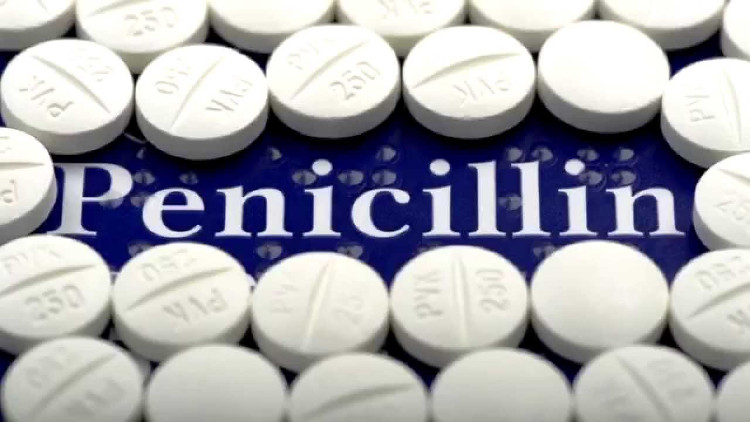The last defensive layer before the virus takes us back to the Stone Age
Does the media and entertainment make us neglect the dangers right in front of the nose?
For decades, the battle for human survival has been silently happening. And today, a bacterium has developed its ability to resist Colistin , the last antibiotic defense round. This is the first time humans face naked like this.
At the end of 2015 in China, microbiologists found a bacterium with the mcr-1 gene that was able to resist Colistin. Not only is this gene unit capable of being transferred from one bacterium to another through plasmids.
From then on, the species of bacteria that carry on this genome have appeared in Europe, Canada and most recently the United States. According to a magazine report in the US, last month, urine from a 49-year-old woman in Pennsylvania state contained Escherichia coli with the gene mcr-1.
The last defensive class of humans against the Super Virus attack?
Colistin is one of the last antibiotics that can prevent Eubacteriales from carbapenem class or CRE . This virus can spread throughout medical facilities and cause death for half of the victims.

Penicillin is the most important invention of mankind, only after fire.
According to the simulation model of researchers, in an equivalent residential area of a district unit, for a decade, CRE can shift from "rare bacteria" to "common bacteria" levels. at medical facility centers.
Relive the most recent time when people are helpless before the risks come from bacteria
This is really an alarming thing, when the only human weapon in hand to cure the original bacteria is no longer effective.
In 1928, Alexander Fleming discovered penicillin and put an end to the death nightmare of infection. Earlier simple infections could also have made the victim ill an unavoidable painful death.
Skin wounds with ulcers, urinary tract infections, respiratory infections etc. . One of the injuries that we don't have to worry about too much today. But in the old days, things seemed not too big to rob their limbs or even the lives of millions.
Alexander Fleming's invention of antibiotics has somehow shaped human society today. Life expectancy has skyrocketed, and the quality of life has increased, leading to an increase in production growth.
Antibiotics are now widely used and many of us do not think about it every time we drink them, at the same time just feel inconvenient because a little bitter taste remains in the mouth.
With the evolution of antibiotics, bacteria also constantly adapt
Bacteria like any other creature has its own survival instincts.
Shortly after Penicillin was born, the first bacteria resistant to antibiotics were born. And the vicious circle from there continues. Humans develop new antibiotics while bacteria develop and resist them.
So humans have increased the productivity of producing antibiotics to prevent it, never letting bacteria win this race. Scientists do not want to repeat the historical period before Fleming gave people that precious antibiotic first.
But people are losing the battle against bacteria

Shortly after Penicillin was born, the first bacteria resistant to antibiotics were born.
A report on the antibiotic production system from The Pew Charitable Trusts said:
- Currently there are too few new antibiotics in production: Only 37 new drugs are in the process of clinical development.On average, for every 5 drugs in this process, only 1 has been successfully studied and marketed.
- Major pharmaceutical manufacturers are not working well: Of the 34 pharmaceutical companies that are researching new antibiotics, only 5 of them are listed as large companies.This means that more than 80% of the drugs being studied are projects of small companies.Half of these companies don't even have anything out of the market.
The main reason behind this is probably due to the very low profitability of other production programs . The cause of this comes from policies that have not really emphasized the importance of antibiotics in today's life.
Governments need to eliminate laws that make it difficult to study antibiotics and promote policies that encourage the production of new antibiotics.
Especially when a disaster seems to be knocking on the door of all humanity.
- Ozone layer: 60 years to recover!
- Discovered Merovingian stone rock dating back to 1,400 years in France
- The Earth's ozone layer is being filled again
- Why do people spread stones along railroad tracks?
- The oldest stone masks in the world
- The mysterious ancient stone circles in the Middle East
- Discover the largest ancient stone by humans
- Huge gigantic discovery near Stonehenge stone circle
- What is the ozone layer?
- Detecting stone blocks of Cham Pa antiquities when constructing bridge foundation
- New discovery of the ozone layer gap in Antarctica
- Hà Tĩnh: Detecting many stone tools over 4000 years
 The United Nations' all-human warning: All antibiotics are becoming useless
The United Nations' all-human warning: All antibiotics are becoming useless How did bacteria learn to fight antibiotics?
How did bacteria learn to fight antibiotics? 10 million deaths are one of the startling numbers about 'Antibiotic resistance'.
10 million deaths are one of the startling numbers about 'Antibiotic resistance'. 7 principles when using antibiotics
7 principles when using antibiotics